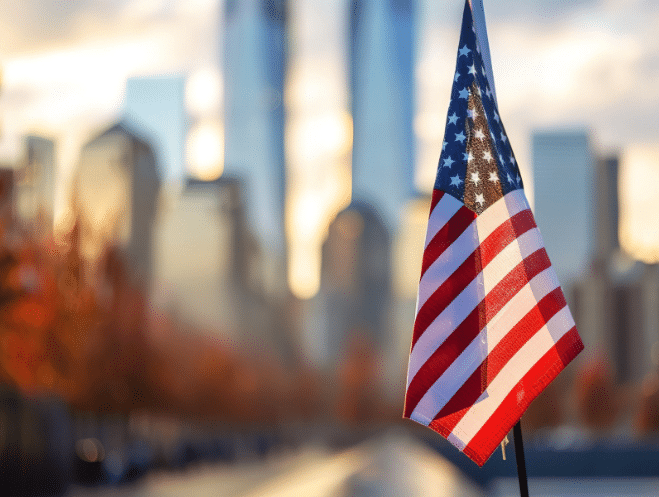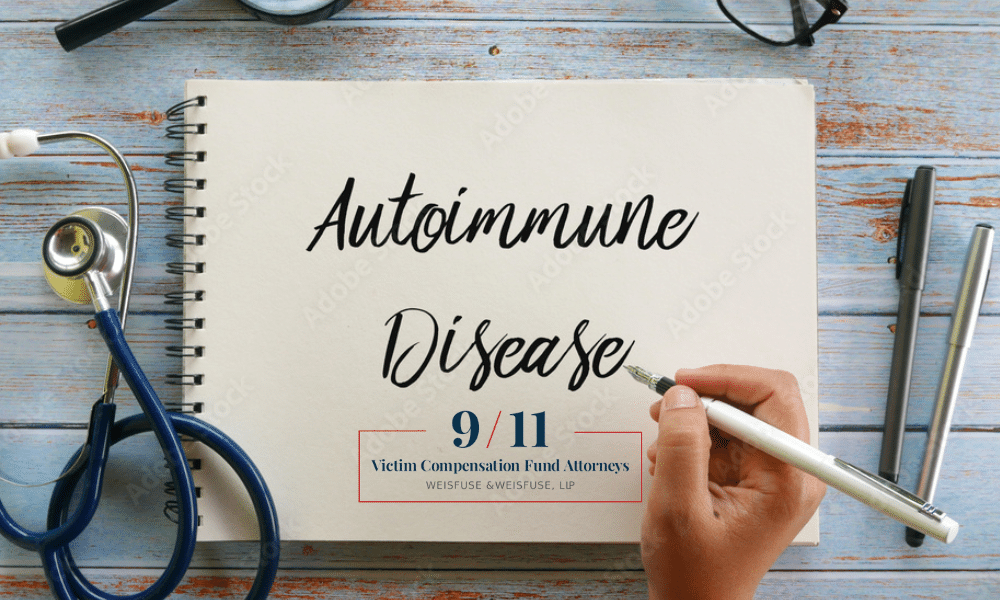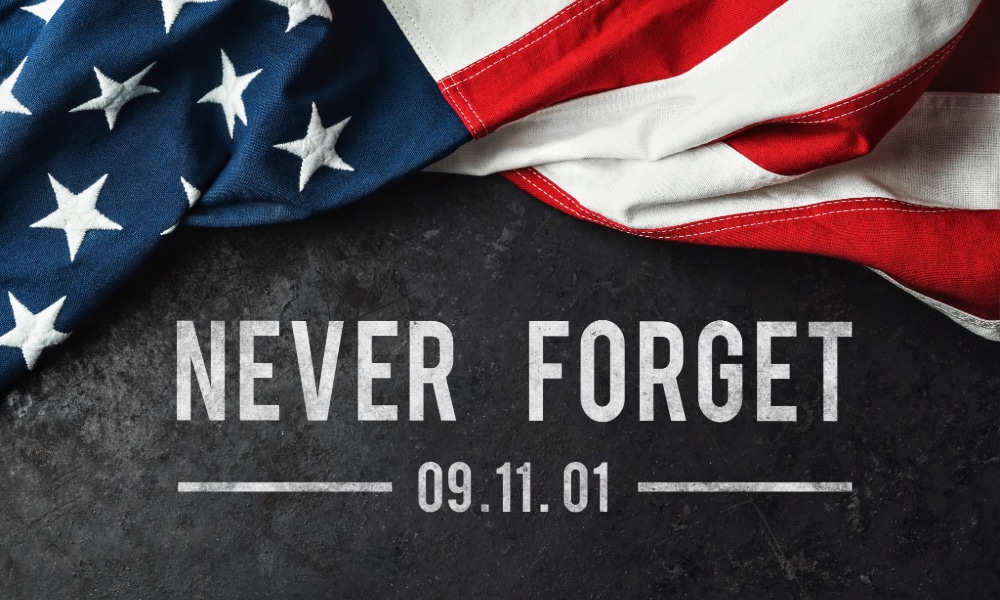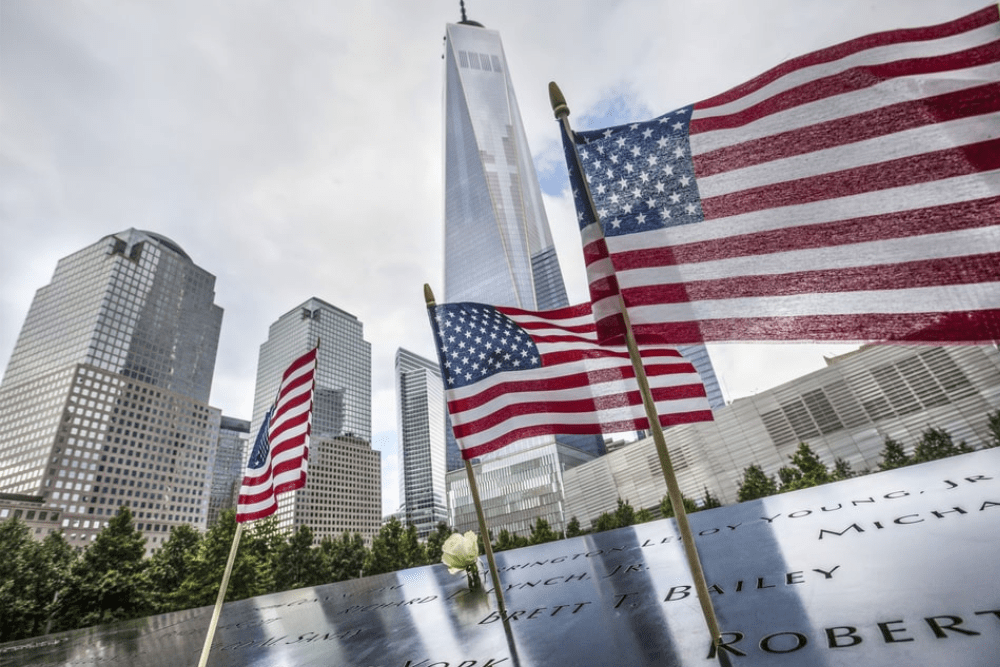
At Weisfuse & Weisfuse, LLP, we are dedicated to representing individuals and families affected by the September 11th attacks—especially those who were present in the exposure zone in New York City and have since developed serious health conditions. Many survivors continue to suffer from respiratory illnesses, cancer, and other chronic conditions directly linked to toxic dust and debris from Ground Zero, the Pentagon, and other affected sites.
As experienced 9/11 Victim Compensation Fund (VCF) attorneys, we help clients nationwide secure the financial support they are entitled to through the federally funded VCF program. This fund was established to provide tax-free compensation for victims, survivors, and the families of those who have died due to 9/11-related illnesses.
Located in New York City, our law firm offers free, confidential consultations and is committed to guiding you through every step of the VCF claims process—no matter where you are in the United States. If you or a loved one has suffered from a qualifying 9/11-related condition, don’t wait. Let Weisfuse & Weisfuse, LLP help you pursue the justice and compensation you deserve.
Compensation for September 11th World Trade Center victims
Recognizing the need to compensate victims and their families, the U.S. Congress established the September 11th Victim Compensation Fund to provide financial compensation for those who suffered from aerodigestive disorders and cancers caused by the inhalation of toxic debris.
Other conditions covered by the September 11th Victim Compensation Fund include:
- Interstitial lung disease
- Obstructive airway diseases
- Upper airway inflammatory disorders
- Gastroesophageal reflux disorder
- Sleep apnea
- Musculoskeletal disorders
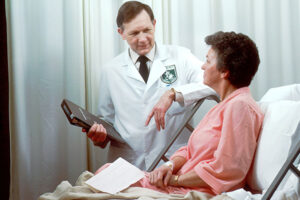
All claims registered with the September 11th Victim Compensation Fund by July 29, 2021, are considered timely, regardless of the date of diagnosis. Those who do not register by July 29, 2021, may still register, so long as it is within two years from the date the victim knew the condition was 9/11-related. That clock begins ticking on the date of World Trade Center Health Program certification, or when any other federal or state entity informed the victim that their condition is 9/11-related. Anyone with questions about whether or not they are eligible to apply to the VCF should contact a VCF lawyer at Weisfuse & Weisfuse, LLP today.
Victims with a 9/11-related illness do not need to definitively prove that their condition was caused by 9/11. Evaluations of claims are based on the date of the onset of symptoms or date of diagnosis, as well as the nature and duration of the victim’s presence in the Lower Manhattan Exposure Zone.
The 9/11 exposure zone
The New York City Exposure Zone is all of Lower Manhattan, south of Canal Street from the Hudson River to the intersection of Canal Street and East Broadway, north on East Broadway to Clinton Street, and east on Clinton Street to the East River.
The sufficiency of exposure depends on the victim’s individual circumstances, including their location, nature of work, when they first arrived on site, and the duration of presence. A minimum number of hours present for cancer to develop is 4 hours or being directly in the dust cloud for any length of time.
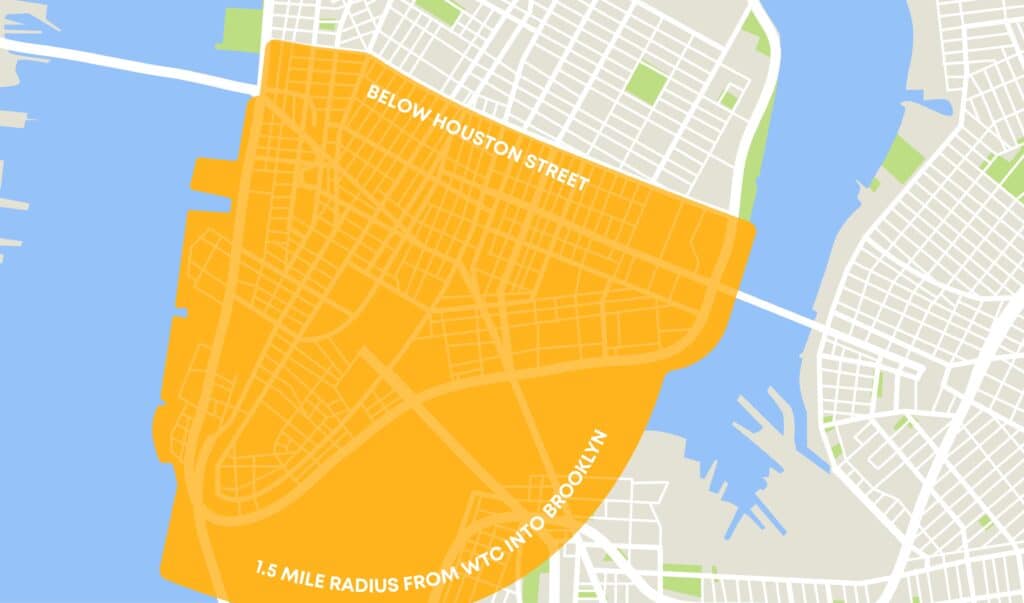
Sept. 11th Victim Compensation Fund (VCF) Deadlines Extended
If you have been diagnosed with any of the 69 types of cancers or respiratory illnesses that medical professionals at the WTC Health Program (WTCHP) have directly linked to the toxic dust at the World Trade Center (WTC), there is still time to pursue significant compensation.
To ensure eligibility for compensation from the Victim Compensation Fund (VCF), it is crucial to understand the application timeline. The deadline to apply is within 2 years from the date when a cancer or illness has been certified by the WTC Health Program or any other relevant governmental agency. It’s important to note that the 2-year period does not commence from the day of a cancer diagnosis. Rather, the countdown begins when a cancer survivor becomes aware that their cancer is associated with exposure to the toxic substances present at the WTC site.
For families who have tragically lost a loved one to a WTC-linked cancer or illness, the 2-year registration period begins on the day of the victim’s death.
Families & WTC victims who’ve missed the claim window
It is disheartening to acknowledge that many victims and widows were unaware of the filing deadlines, resulting in missed opportunities to submit their claims to the Victim Compensation Fund (VCF) or even failing to file altogether. However, there is renewed hope as the VCF has introduced a window of opportunity for these victims and their families to pursue their claims. Here’s what you need to know:
- Ineligibility due to missed filing deadlines: If you were deemed ineligible by the VCF because you filed your claim after the designated filing deadline, you now have the right to revive and pursue your claim.
- Pending appeals based on timeliness denials: If you currently have an appeal pending because your compensation was denied due to timeliness issues, there’s good news. The appeal becomes unnecessary and will be canceled. Instead, your claim will be reevaluated, and it is highly likely that it will be deemed eligible if you meet other requirements, such as being able to demonstrate that you or your family member were within the exposure zone.
- Unfiled claims due to untimeliness: If you refrained from filing a VCF claim because you believed it would be considered untimely, you now have the opportunity to bring forth that claim.
Hiring a VCF attorney for a 9/11 claim
To successfully file a 9/11 Victim Compensation Fund (VCF) claim, you must provide comprehensive evidence of your presence in the exposure zone, the severity of your health condition, and any economic losses you’ve incurred. This documentation can include:
- tax returns,
- medical records,
- affidavits verifying your location during the attacks,
- out-of-pocket expenses,
- and insurance or pension information.
Navigating this complex process can be overwhelming, which is why having an experienced 9/11 attorney by your side is invaluable. It is worth noting the Victim Compensation Fund does not require you to hire an attorney to file a claim, but working with an experienced 9/11 attorney can help you navigate the complex application process and maximize your compensation.
A knowledgeable lawyer will ensure that all necessary documentation is submitted, and your eligibility is clearly established, helping you secure the full amount of compensation you’re entitled to. Unlike typical personal injury cases, where attorney fees can reach up to 40% of the settlement, VCF attorney fees are capped at 10%, allowing you to retain the majority of your award.
Get 9/11 Victim Compensation Now
Gain access to essential healthcare and explore your eligibility for compensation from the 9/11 Victim Compensation Fund with our assistance. Our dedicated team is here to guide you through the process of registering for free healthcare through the WTC Health Program and evaluating your potential eligibility for compensation. Call us today at 212-983-3000 or conveniently reach out to us online to take the first step towards securing the support you deserve.
How long does it take to receive my 9/11 VCF payout award?
The average final determination is 15 months from the date of submission of the claim. However, the determination can be quicker or longer depending on the complexity of the case. There may be prolonged by appeals and/or difficulties in obtaining records.
VCF compensation September 11th victims can recover
Each award is calculated individually. The final award: Non-Economic Loss plus Economic Loss minus Collateral Offsets.
Non-Economic Losses
The September 11th Victim Compensation Fund will award money to compensate for non-economic loss, also known as pain and suffering. Non-economic loss awards are presumed amounts based on the type of illness claimed.
The non-economic loss award can be increased by presenting evidence of a significant effect on activities of daily living. For example, providing evidence of surgery or chemotherapy may increase the pain and suffering award.
Non-Economic Awards for Cancer Survivors
The maximum non-economic award for any single type of cancer is $250,000, except skin cancer, which is in the range of $90,000.
Non-Economic Awards for Non-Cancer Conditions
The maximum non-economic award for any one type of non-cancerous condition is $90,000.
For example, Emphysema, Interstitial Lung Disease (including asbestosis), and sarcoidosis are considered so severe that they will warrant the highest possible non-cancerous award of $90,000 without the need for further documentation. However, there are limited exceptions where the $90,000 cap can be increased. Certain claimants with interstitial lung disease or other pulmonary illnesses suffer in the same way as a lung cancer victim.
These claimants might require lung transplants or mechanical respiratory assistance on a daily basis. These claimants may receive the same award as someone with lung cancer.
Non-Economic Loss for Wrongful Death Claims
A death claim consists of the losses after the date of death with a presumed non-economic loss of $250,000 plus $100,000 for the surviving spouse and for each additional dependent. There will be an additional award for the pain and suffering from the date of injury to the date of death.
Economic Losses
The September 11th Victim Compensation Fund awards compensation for Economic Loss, including loss of earnings, out of pocket medical expenses, funeral expenses, and household services.
Loss of Earnings
The September 11th Victim Compensation Fund awards compensation for loss of past and future earnings. The VCF will also compensate for the loss of employment-related benefits, including pension programs, retirement contribution plans, and health benefits. The VCF caps compensable gross income at $200,000 per year. The loss of earnings award is offset by pension, Social Security Disability (SSD), or private disability insurance.
To prove that your 9/11 related condition is or was disabling, the VCF may accept determinations made by SSD, Workers’ Compensation, or a private disability insurer. Without SSA earnings, the loss must be proven by tax returns or other business records, as well as medical documentation supporting disability. In a death claim, loss of future earnings may be awarded where there is evidence that the death from an eligible condition and resulted in a compensable loss.
For discrete past loss of earnings claims, you may be able to prove the loss without a disability determination by providing medical proof of a temporary disability. In certain circumstances, the VCF may permit a WTCHP disability evaluation, upon request.
Contact Weisfuse & Weisfuse, LLP For VCF Help
A complex process requires the help of an experienced 9/11 compensation attorney. At Weisfuse & Weisfuse, LLP our 9/11 victim attorneys have helped victims of September 11th secure the compensation they deserve. Our lawyers remain at their side, navigating them through every step. Contact our law firm by calling 212-983-3000 or contact us directly online for a free consultation.



